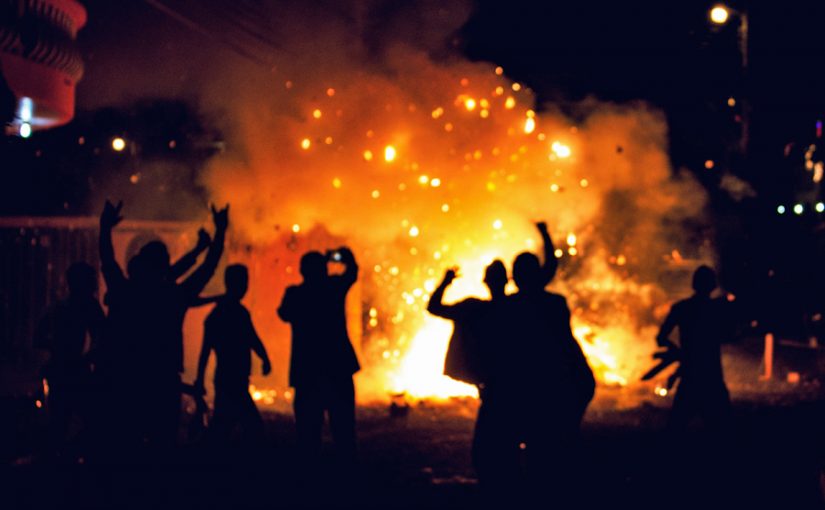A homily for the Fourth Sunday in Ordinary Time, January 30, 2022
Jer 1:4-5, 17-19, 1 Cor 12:31—13:13, Lk 4:21-30
The Rock and Roll and Country Music halls of fame. New Jersey Hall of Fame. Halls of fame for every sport imaginable, at every level conceivable: pro, college, amateur and more.
In fact, there probably are halls of fame for every endeavor in which more than three people participate.
And if an inductee is somebody local, then every family member and every neighbor and every teacher and preacher and the mayor and fire chief and three marching bands parade down Main Street to hail the Hometown Hero.
So why did Jesus have to slip away from his home village to avoid being run out of town on a rail?
Didn’t he qualify as a Hometown Hero?
Maybe it was because he implied that he was the GOAT instead of letting someone else crown him. Maybe it was because he was throwing figurative stones at the hall of fame his neighbors had prepared for the messiah they thought they wanted or needed.
Maybe it was because he was just too darned radical.
For 700-plus years, the Chosen People had chewed over Isaiah’s words, framing them in their current events: wars, kings, temples, temples destroyed, claiming the Promised Land, and finally occupation by pagan Rome.
The Israelites expected the prophet’s words to be fulfilled by a mighty warrior who would restore the throne of David with blood, gold, Lebanon cedar and the spices of the Orient. The Son of God they expected would wear armor, flash a polished sword while riding on a fast, strong Arabian steed.
David slew Goliath. His descendant would slay all of the Roman usurpers. The children of Abraham would be the captives set free, and their freedom would be the era acceptable to the Lord, as proclaimed by God’s suffering servant.
For 700-plus years, Isaiah’s words were heard and interpreted more and more narrowly, as the Israelites mingled them with the letter of the Law and became almost mechanical in their actions and activities.
So when Jesus proclaimed from the scrolls in the synagogue, as we heard in last week’s Gospel passage, “all spoke highly of him and were amazed at the gracious words that came from his mouth.”
Because they expected him to fulfill what they knew, what they expected, what they had always done.
But Jesus didn’t, and Jesus wouldn’t. That irked the Nazoreans. The first norm that Jesus eighty-sixed was “That’s the way we’ve always done it,” and that flipped the townspeople on their heads.
It was time for a New Covenant.
It was the dawn of the Law of Love.
It was a trip into uncharted territory, and that was scary. Frightened people act irrationally.
Jesus’ hometown neighbors wanted to toss him into a hole of shame, not enshrine him in a hall of fame. Fortunately, he ducked out just in time.
In truth, the people of Nazareth were not fundamentally ill-tempered. They were not being evil as they routed the man they knew as Joseph’s son; most of the villagers, in all likelihood, believed they were ridding themselves of some sort of blasphemer or charlatan, despite the purported miracles he supposedly pulled off.
In truth, they were comfortable with what they had known and been taught all their lives.
By preaching and acting upon what he would come to define as The Two Great Commandments, Jesus was pushing them out of their comfort zones.
Their 700-plus-year comfort zones. Perhaps their 3,000-plus-year comfort zones.
Moving on from what you’ve always known is hard work, and hard work is not usually comfortable.
It’s hard work to consider a new way to have a relationship with God. It’s hard work to compile a list of the ways God wants her people to support, preserve, enhance and continue Creation. It’s hard work to actually do it.
It’s hard work — and terrifying work — for people to change their minds in the face of new revelations, in the accumulation of more and greater truth.
It’s still hard work.
Which is why God sends Wisdom.
Which is why God showers all of us, the spiritual descendants of those Nazoreans, with the grace and strength to follow Jesus out of town and continue his work.
The people of Nazareth were not the only ones stuck in their comfort zones. Each of us is challenged daily to choose God or mammon, to choose the Golden Rule or the rule of gold.
Many days, alas, it’s difficult to choose, even when the choice is clear.
To be Christ, to see Christ in our brothers and sisters in need — of food and shelter, of love, of hope, of someone to accompany them on the journey of life.
And so:
Even today, 2,000-plus years after the Son of Man walked among us…
Even today, 2,700-plus years after Isaiah spoke the words of God…
Even today, the Law of Love remains radical.
And, God knows, we need its radical power and guiding light more than ever.
